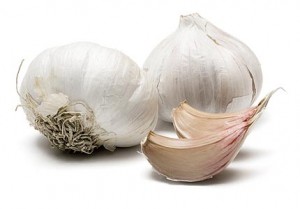 December’s food of the month is: garlic!
December’s food of the month is: garlic!
Cuisines around the world rely on the strong, deep flavors of garlic to season their food. South Asians in particular are known for including garlic in their everyday cooking. In fact, a dish without garlic is sometimes not considered a complete dish!
While we know of the obvious benefits of eating garlic (it keeps the vampires away), new published research is identifying a connection between garlic consumption and better mental and physical health.
Primarily, researchers at the University of Hannover in Germany found that participants who ate significantly more garlic showed improvements in their mood. These participants reported feeling less fatigue, anxiety, sensitivity, and irritability. This surprising result was the first time garlic has been scientifically shown to have a direct connection with mental health symptoms.
Vitamin B6 is also found in large quantities in garlic. This vitamin is essential for healthy nerve functions. A diet low in Vitamin B6 is often prevalent by feelings of irritability and low mood. There has been numerous research conducted showing that high levels of Vitamin B6 in the diet are necessary to protect against low mood and depression.
Garlic is an excellent source of the mineral called manganese, which is needed for proper and optimal brain functioning. This mineral is strongly correlated with lowering depression symptoms, such as irritability, sadness, low mood and fatigue. Manganese is also related to regulating blood sugar issues which could also explain the elevation in mood for people eating diets rich in manganese.
Garlic also stimulates the body’s immune system and helps fight off infections more readily. This is especially important during times of stress when our immune systems become compromised and we are more likely to develop illnesses such as a cold, flu, or other viral infections.
Similarly, garlic a good source of Vitamin C, which has numerous positive effects on our mood and mental health. When we experience stress, we excrete a significant amount of cortisol (the stress hormone), which if it becomes a chronic problem, weakens our adrenal glands. Vitamin C has been shown to repair the damage to the adrenal glands due to chronic stress.
It is also a good source of selenium, a mineral that has been associated reduces risk for Alzheimer’s Disease and other forms of dementia. In fact, diets rich in garlic have shown to protect against aging of the brain to maintain higher brain functioning and cognitive abilities (such as having a sharp memory and being able to process information quickly).
Finally, garlic has been shown to reduce blood pressure and triglycerides, to inhibit the production of LDL (the bad cholesterol) and to have anti-inflammatory properties.
We hope you will enjoy the recipes for this month and experience some of the many significant physical and mental health benefits of garlic.
Broccolini with Carmelized Garlic (see recipe)
Roasted Garlic Hummus (see recipe)
Garlic Soup (see recipe)
Roasted Garlic Crostini (see recipe)
We would love to hear your response to this article! Please feel free to leave a comment. (Comments can be left anonymously if you type “anonymous” or just your initials into the name box).
